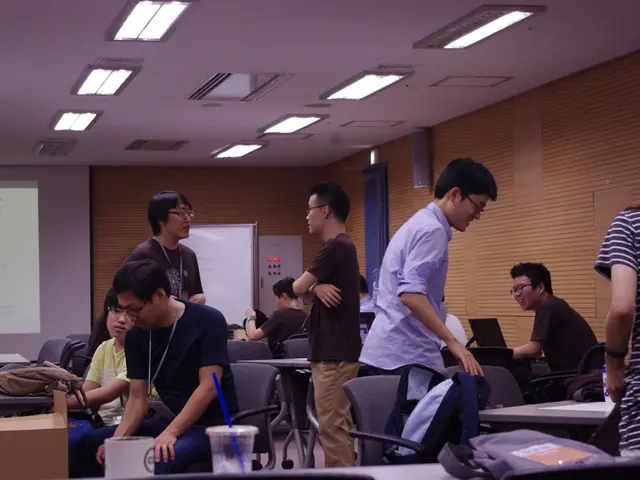Cybersecurity trainees hone their skills in Latvia's educational programs
In a bid to bolster the cybersecurity landscape in Latvia, Riga Technical University (RTU) has launched a training programme for cybersecurity specialists. This initiative, funded by Google.org, aims to supplement existing staff in companies and institutions with individuals who can help organise documentation and implement processes in line with the new Cyber Security Law.
The new law, adopted last year, requires all companies and institutions to take cybersecurity more seriously, appoint a manager, and assess the risks. With the increasing number of cybercrimes in Latvia, the need for such a programme is more pressing than ever.
The training primarily targets local government organisations, schools, libraries, regional media, but is open to any application. The programme is designed to help strengthen the existing capacities of companies, particularly those in the regions where competences are not as readily available.
The first phase of the training started in Liepaja and Rezekne in March, specifically for the Kurzeme and Latgale regions. The new specialists will receive a stipend of €450 per month for the two months they are with the company. An experienced mentor will also be on hand to support the trainees throughout their traineeship.
Companies and institutions are encouraged to consider the opportunity to attract cybersecurity specialists for an internship period to help implement the regulatory framework. This could potentially extend to helping any company in Latvia, not just those initially targeted.
Baiba Kaškina, head of the information technology security incident prevention institution "Cert.lv", stated that while the number of "hacktivists" has decreased, the overall number of cybercrimes in Latvia is increasing. Encrypting viruses are still rampant in Latvian cyberspace, as are various attempts to change invoice details and defraud companies and institutions of their financial resources.
A growing variety of new scam campaigns in Latvia aim to defraud citizens of their banking access data, personal data, and other information. For businesses and organisations in Latvia, attacks that try to gain access directly to infrastructure are more acute.
To find out what services and specialists would be most suitable for each company's needs, the team plans to talk to each company individually. The Federal Office for Information Security (Bundesamt für Sicherheit in der Informationstechnik, BSI) offers training for cybersecurity specialists until the end of 2026. RTU will organise training for cybersecurity specialists in Riga starting in May.
RTU researcher Rūta Pirta emphasised the importance of companies and institutions implementing the necessary documentation and processes in accordance with the new cybersecurity law. The aim of the training is to strengthen the cybersecurity capacity of regional companies in Latvia and help them meet the challenges of the digital age.








